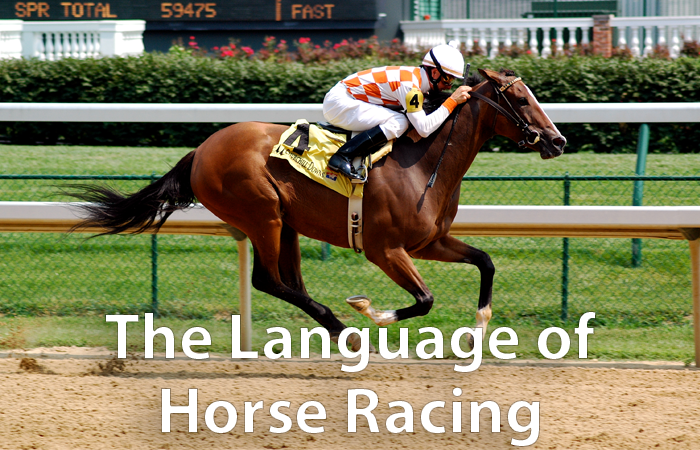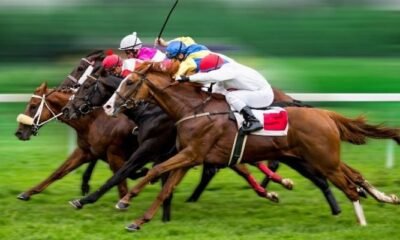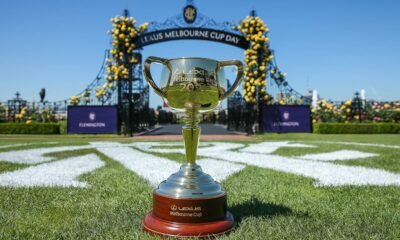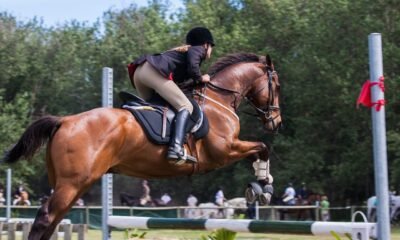
Horse racing jargon?
When it comes to horse racing, there are many terms used. Horse races have the fastest land animals charging towards each other to capture victory or second place. Horse racing is a national pastime that people watch on television or at the track itself. Horse Racing can be an exciting sport, so there are so many terms used. Horse racing terms can be confusing, but the easiest way to understand them is to break them into simple English. Let\’s take a close look at some standard Horse Racing Vocabulary Terms that you may find interesting! Horse racing vocabulary words like these will help you feel confident when talking about Horse Racing. Horse racing can be pretty confusing, especially if you are new to the sport, but these Horse Racing words will get you started. Horse racing is a fun sport for all ages!
Some of these Horse Racing Vocabulary Terms consist of the Jockey Club approved definition, while others explain based on typical usage. It\’s important to note that this Horse Racing Vocabulary list is not all-inclusive. Horse racing continues to grow and change over time, so Horse Racing Vocabulary terms will continue to be added!Horse racing vocabulary
Horse Racing Vocabulary Terms Include:
- Alphabet soup – The sequence of numbers assigned to racehorses in chronological order of their birth. Horse racing is a game of numbers, and this Horse Racing Vocabulary term will help you understand how it is used!
- Apprentice jockey – A jockey who is in the first year of riding.
- Around the turn – Two furlongs (400 meters) from the finish line.
- Backstretch – The track area behind the home where most horses are stabled. The wall in a horse\’s stall is behind it when being saddled.
- Bandage – Wrapping of an injured Horse.
- Barrier trials – Races for three-year-olds designed to prepare them for their debuts in the central Australian races over ten furlongs.
- Be in the money – A racing expression indicating that a bettor has chosen the winner of a race.
- Blinkers – Special Horse Racing equipment that covers the eyes of a Horse.
- Bolt – To break quickly from the barrier and go straight to the lead after the start.
- Box – A stall in a racetrack. The term comes from the old days when horses were shipped by rail and boxed on three sides.
- Break – To begin a race.
- Bug boy – A stable hand who works with young horses on the farm before going to the racetrack.
- Cambered track – A track with a surface in transition from one width to another.
- Carry the torch – A jockey\’s quest to follow in a famous rider\’s footsteps.
- Claim – To present a legitimate claim on a race or racecourse. A claim is filed if the horse is claimed out of the first stakes race it runs in after its first win.
- Clerk of scales – A Horse Racing official who certifies the weight of jockeys.
- Clocker – A clocker is a person who times horses when they gallop on the track.
What do the different letters mean in horse racing?
The letters in the horse racing sport do not have any specific definition or meaning; they were chosen because of their enjoyment and lack of reference to anything outside the sport. H is for Horse, S is for Speed, and R is for Race. Letter choice in horse racing is simply a repetitive pattern that the people easily memorize. Letter choice in horse racing should not be confused with other letter combinations used to represent different groups or organizations. Letter combination does have meaning in horse racing, but it should not be interpreted as any acronym. Letter combinations can refer to specific people, places, things, and events. Letter combinations are used to organize

In addition to the lack of meaning behind letters, there are no specific rules on how many times a particular note must be used. This means that some races might use the letter Z, while others may not use that same letter at all. Letter choice in racing is purely aesthetic and should never be interpreted as having any specific meaning or definition. Letter combinations are repeated throughout horse racing to make it easier for the people of this sport to memorize the order of things.
What is gelding in horse racing?
The gelding is the term used to describe a horse castration. The gelding operation removes the testes so that hormones generally made by the testes will not be produced or act on other organs.
The gelding procedure requires general anesthesia and is usually performed with an unguarded scalpel, making it possible to make serious mistakes. A gelding is also known as geldan, gelded, geldon, or gelding.
The gelding process is considered routine surgery and has the benefits of preventing breeding soundness in horses that might otherwise engage in activities that can cause injury or death to other horses through the use of their reproductive organs.
The gelding procedure also has the benefit of preventing the production of hormones (e.g., testosterone) during the horse\’s life, which decreases or eliminates problems such as \”distemper\” – aggressive behavior caused by the release of hormones at times when they are not needed. The gelding process has a calming effect, and geldings are generally easier to manage than stallions.
The gelding process can also benefit from ensuring that a gelding is not distracted by mares in the vicinity during competition, such as in horse racing or show events.
When gelded before puberty (early age), there is a tiny chance that gelding will have a negative effect on the development of skeletal structures.
However, geldings are more likely to be gelded later in life (past puberty), as gelding is most often performed on racehorses and horses engaged in activities where mating behaviors could interfere with sporting quests such as show jumping.
Furthermore, geldings are more likely to be gelded later in life because horses gelded at an early age can still reach puberty and start producing hormones related to breeding and sexual behavior.


Must See
-


Racing Events
/ 4 years agoBiggest Horse Racing Events around the World
This article will be discussing 10 of the biggest horse racing events happening throughout...
By Robia Sarah












